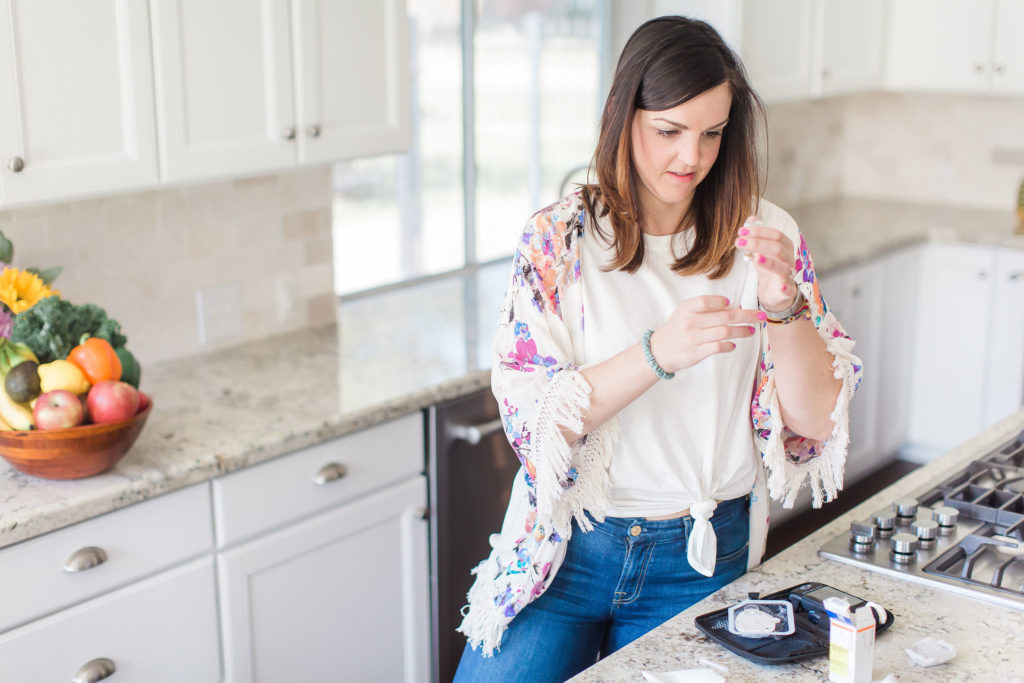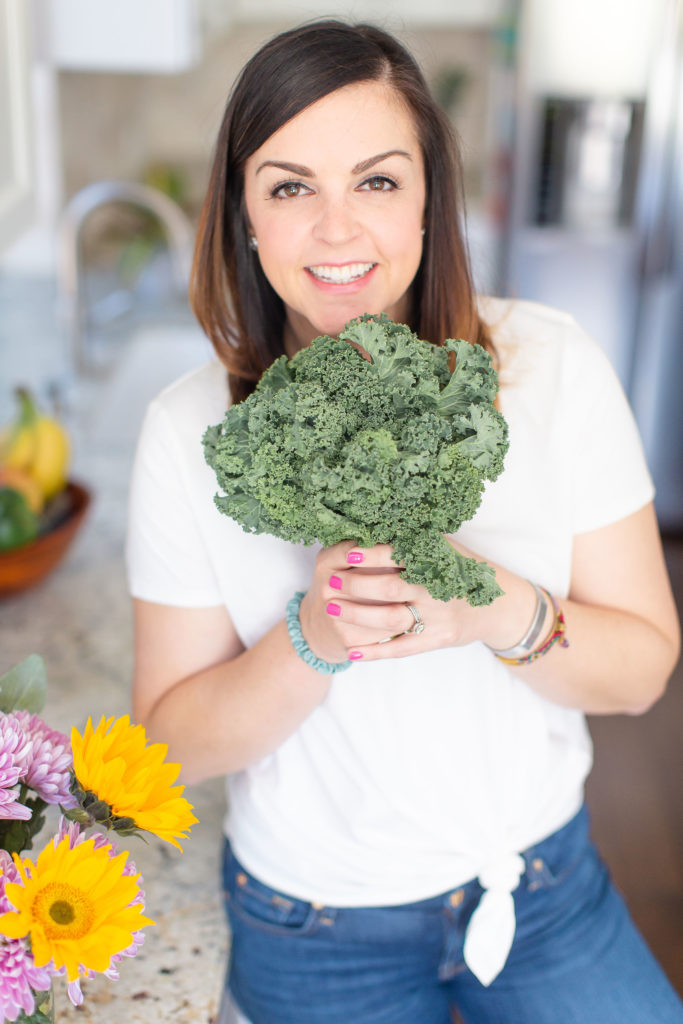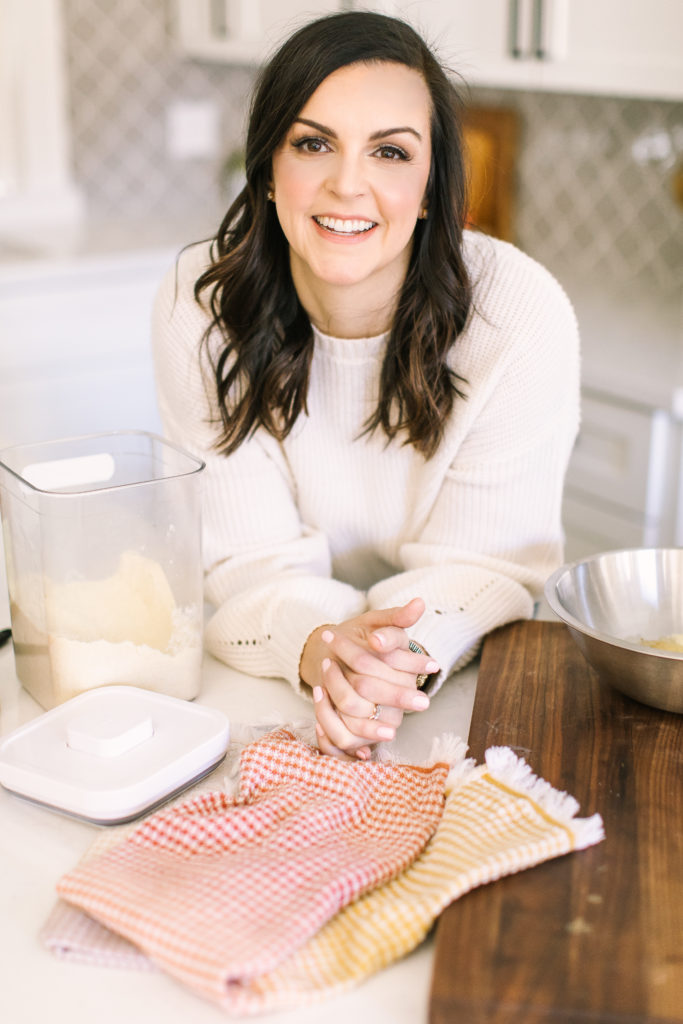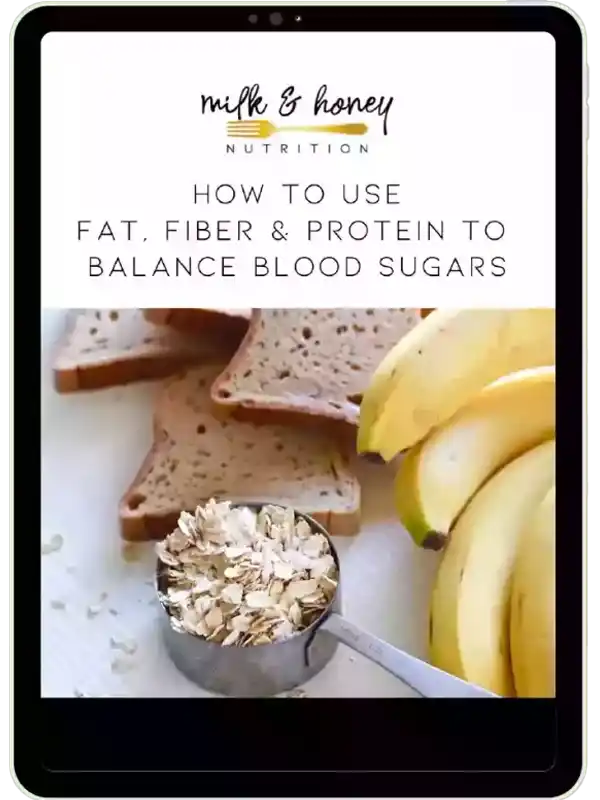1) Just say no to changing who you are
A quick google search will show you a staggering amount of people fail to reach health goals when they attempt to change everything about the way they eat all at once. I think a lot of it stems from people thinking they need to change something about themselves, rather than thinking about just making some positive behavior changes.
It helps to focus on your behaviors rather than the outcome. For example: Commit to eating more vegetables each week, not to losing a certain amount of weight. You’re more likely to be able to control that outcome and thus set yourself up for success. And let’s face it…doing what you hoped to do, or INTENDED to do, feels good. And that feeling will help motivate you to continue eating more vegetables 🙂
2) Prioritize your health above your body size
Hopefully by now you’ve clued in that I’m a big fan of loving your body where it’s at and not bowing to the pressures of our culture to be a certain size. It took me a long time to get to this point, and I would give anything to go back to my teenage and early twenty-something self and tell her “You are fabulous, amazing, and beautiful… on the inside and outside!”
This mindset of doing what is best for your health (and subsequently the way you feel, not the way you look) and NOT what will shrink your body, is also another way to avoid setting yourself up for failure. If our focus is on eating and drinking things that make us feel our best, then we’re bound to succeed!
3) Make eating an active (intentional) activity
You have to focus on what you’re doing. Eating has become a very passive activity in our culture. We eat a hurried lunch at our desk at work. We shovel food in our mouths standing at the kitchen counter while we feed the kids. We grab a quick breakfast to eat while we’re driving.
I challenge you to make eating a priority. Let it be the primary thing you’re doing at the time so you can really focus on enjoying your food and honoring when you’re full.
4) Don’t eat too fast
Have you ever heard that it takes about 20 minutes for your brain to get the signal that you’re full? Well, from what we know, it’s true! If you eat too fast, hormones like leptin, cholecystokinin, and dopamine can have trouble keeping up and can’t send signals to your brain as fast as you’re eating. By slowing down, you’re helping your gut have ample time to send these signals to your brain.
5) Plan out your weeks
Now, I’m not a meal prep guru by any means but I do place a lot of value on PLANNING AHEAD! Think about the week before you. What are your busy days? What are your slow days? Could you cook a double batch of something on a slower day so you have something easy and ready to go on a more stressful day and avoid having to get fast food? (Not for fear of weight gain or anything like that, but more so you can make a more nourishing choice for your body on a stressful day when you could probably use some more nutrient dense food. ) Click here to download my free meal planner.
6) Identify foods that don’t make you feel good
I’m not talking about food sensitivity tests here (though I do think there is a time and a place when they are useful). I’m talking about being in tune with your body and recognizing certain things you eat that don’t make you feel your best.
A perfect (and totally random) example of this for me is raw carrots. A really nutritious food, right? Well for me, they almost always result in indigestion, a stomach ache, and burping. So when I eat carrots, I typically only eat them cooked.
This same line of thinking is why many people choose to cut out more hot topic type foods like dairy, grains, gluten, etc. If this is you, make sure you are truly doing it to feel better and not just to have more control over your food or for weight loss.
7) Prioritize all meals
We often hear that breakfast is the most important meal of the day. Well, it’s not. They are ALL important. Give each meal the care and consideration it deserves.
8) Don’t believe the hype
There are way too many “health” or “wellness” websites out there written by people who have no business and no training in the field. Many of these websites cite personal experience as their one frame of reference and that “xyz” is what worked for them, so it will definitely work for you too. WRONG.
We are all uniquely different and failing to recognize that is just poor judgement. I’d also challenge anyone who doesn’t believe or support science-based research results. The reason we as dietitians favor a science-based approach is because it takes into account a summary of experiences from many, many people and via that lens, we are able to make educated and informed recommendations for your unique situation. If a website is causing you to fear food or certain food groups even more, then run. Run far away.
9) You do YOU!
This is probably the most important intention to set about food. Don’t compare yourself to your mother, sister, neighbor, friend, or that girl on social media you follow.
Your food choices are just that: YOURS. What is best for you, is going to look different than what’s best for someone else. Remember that.





